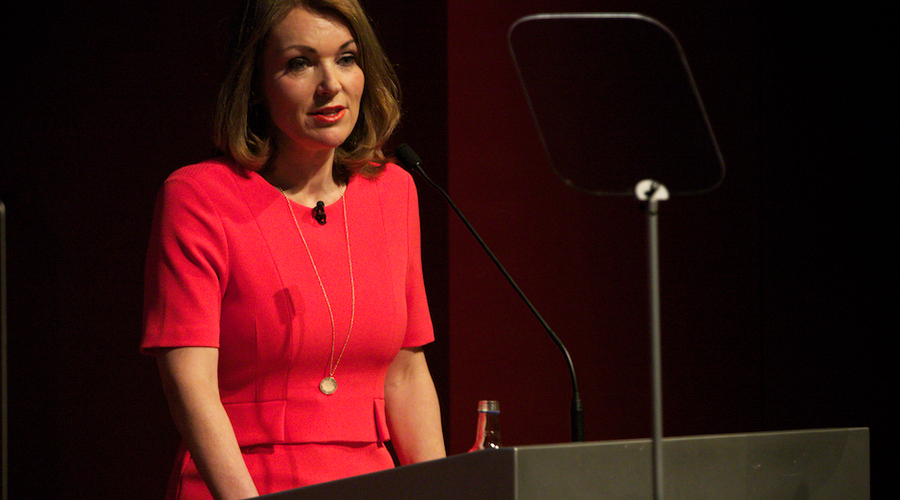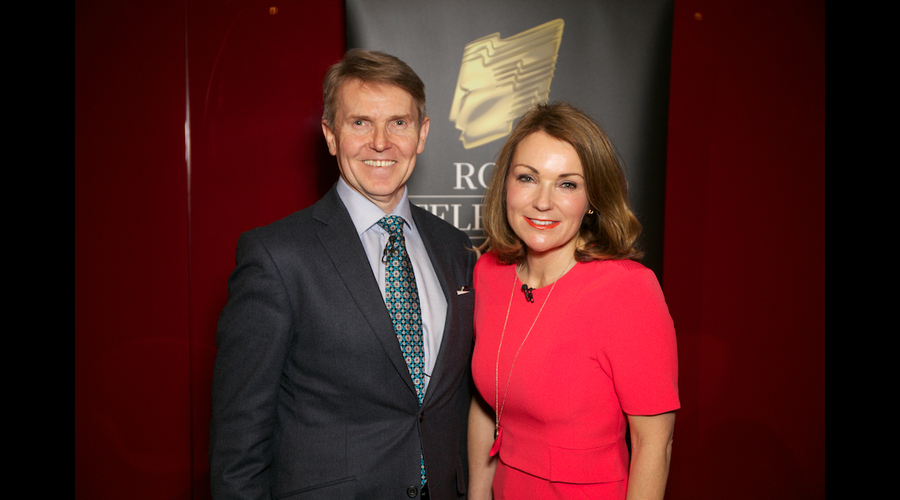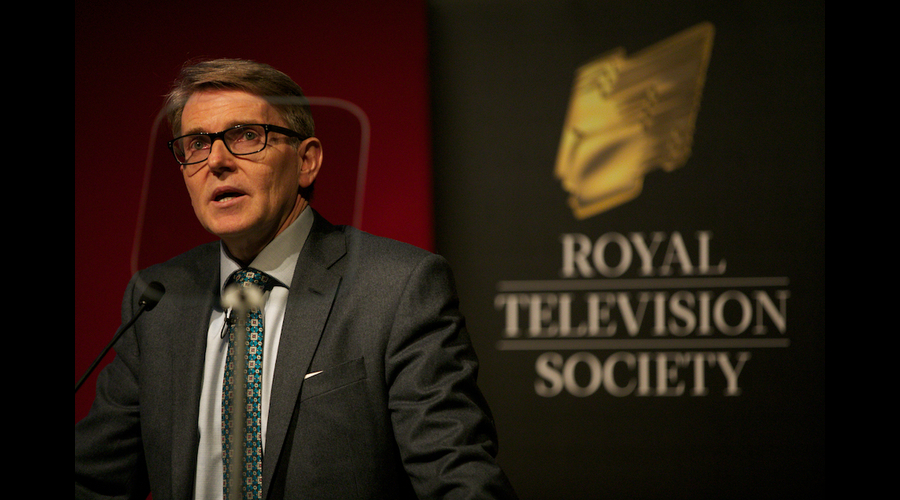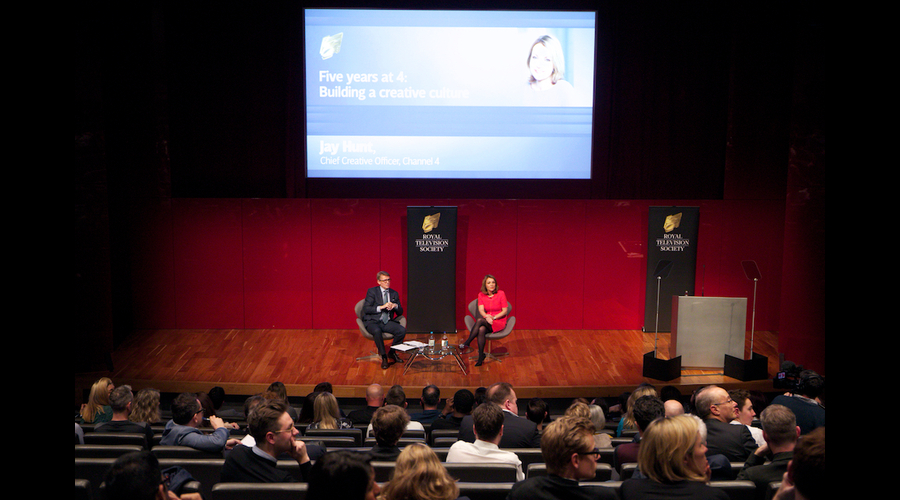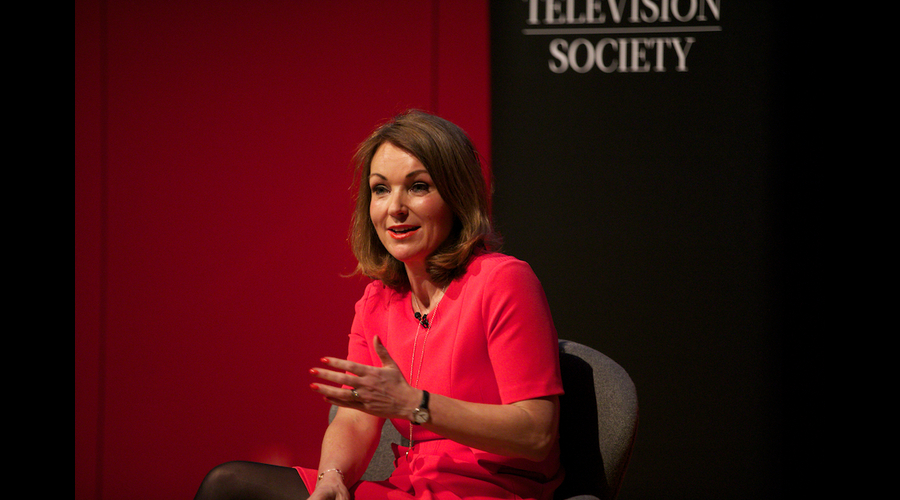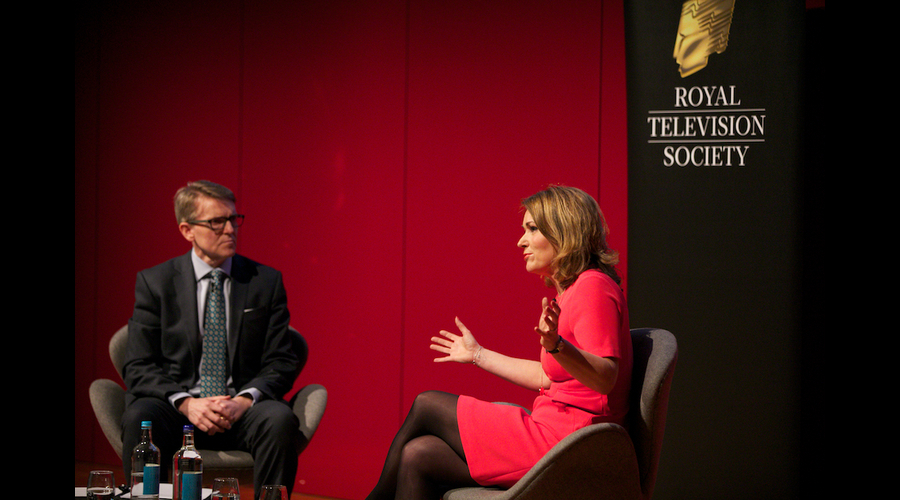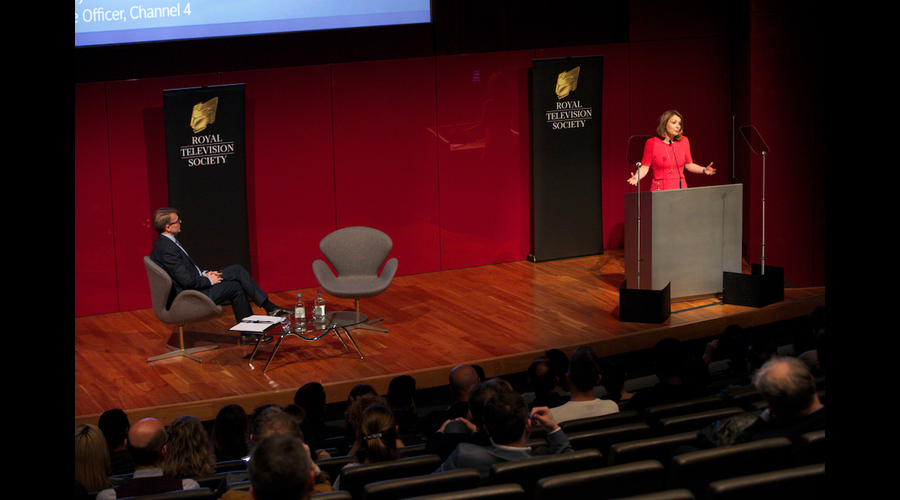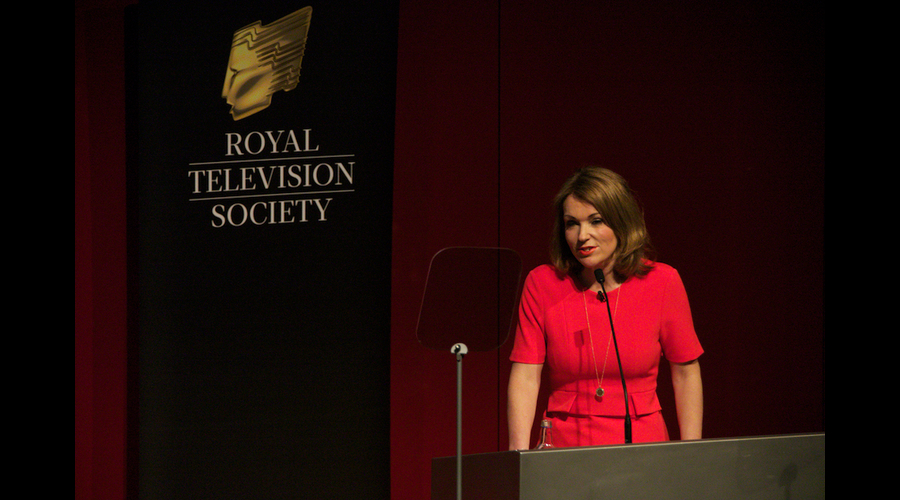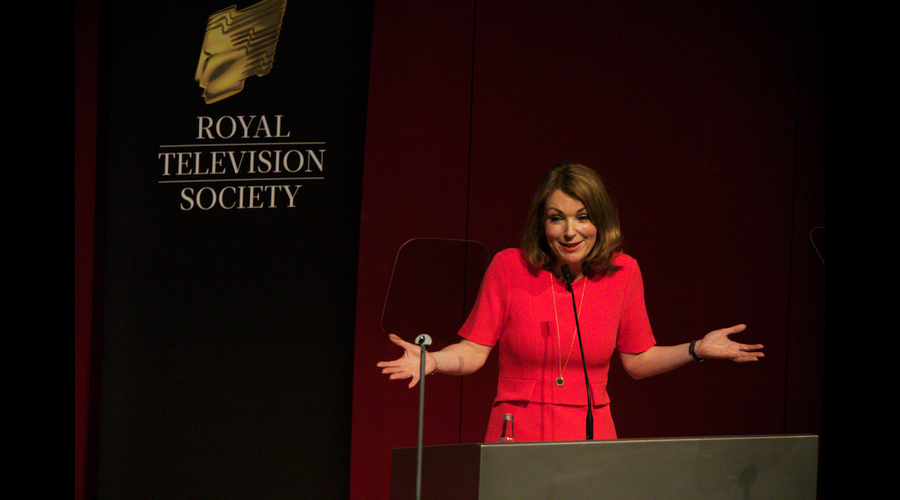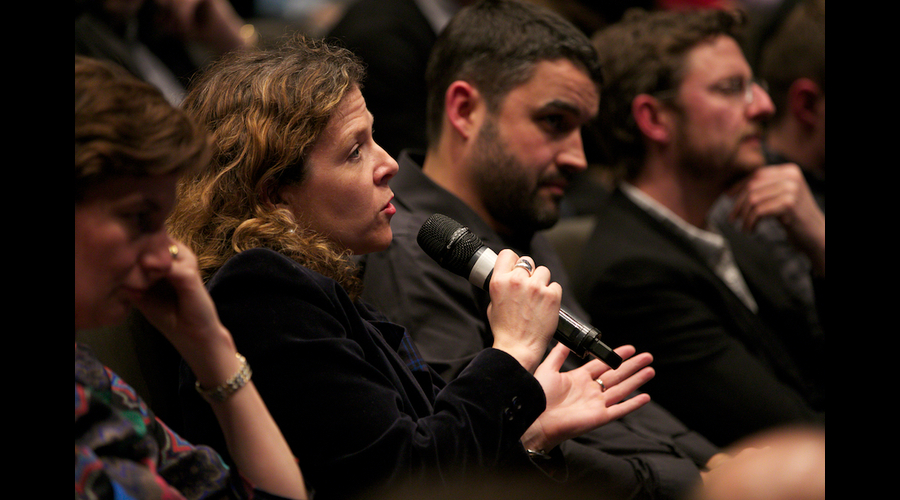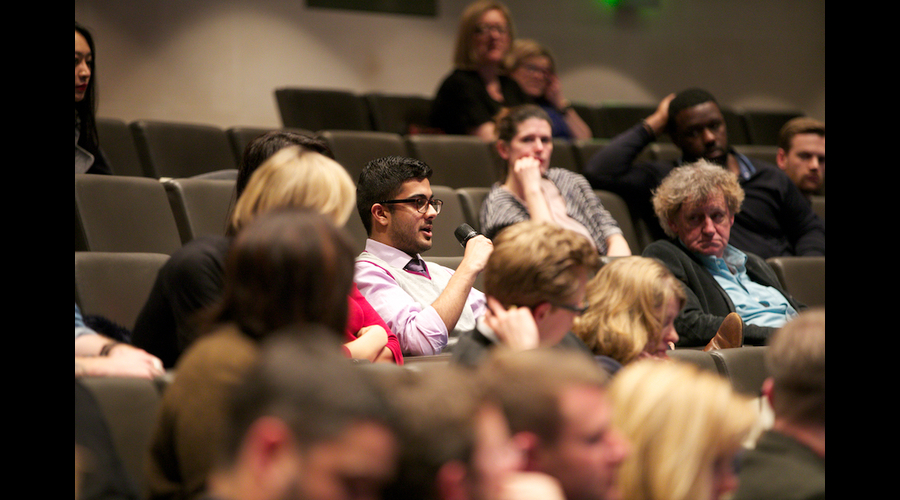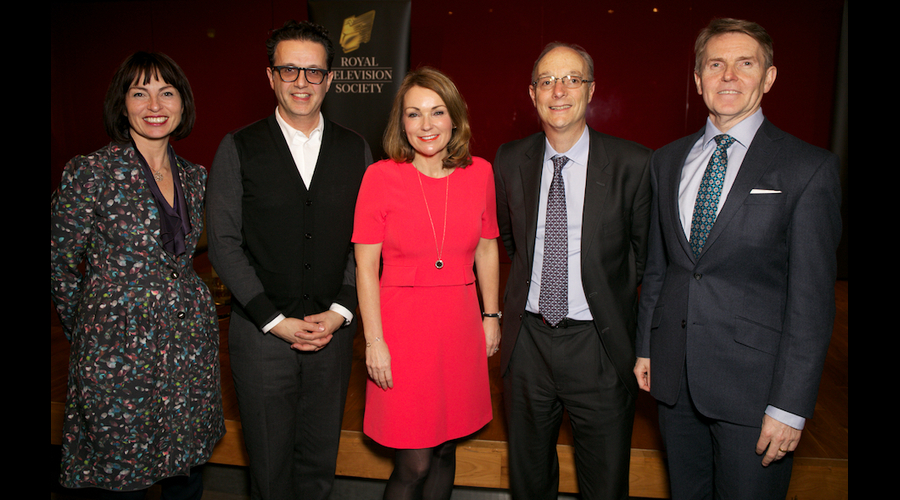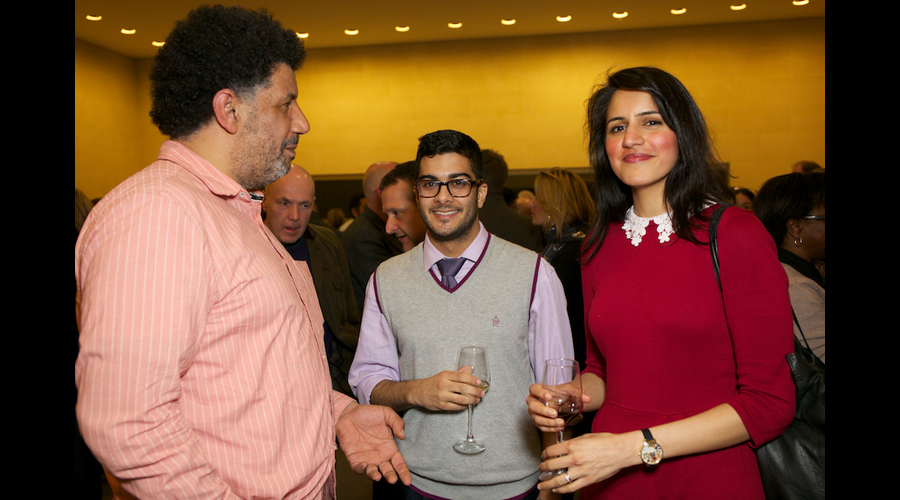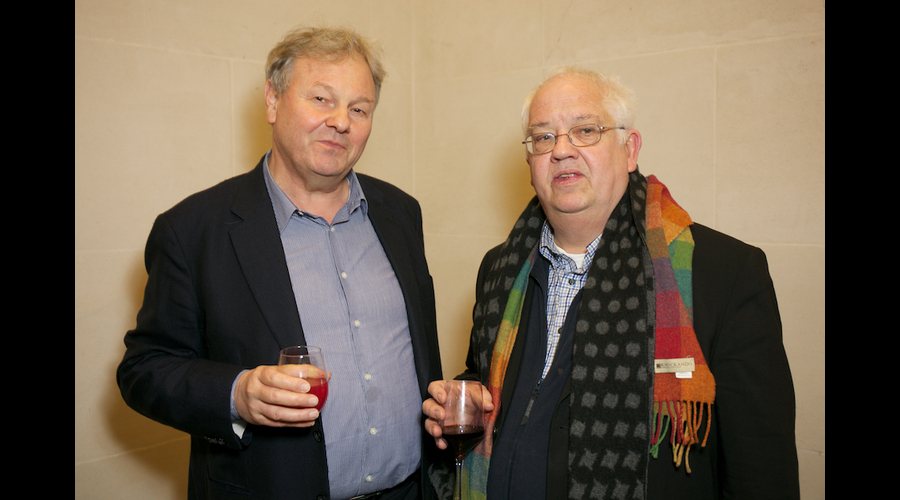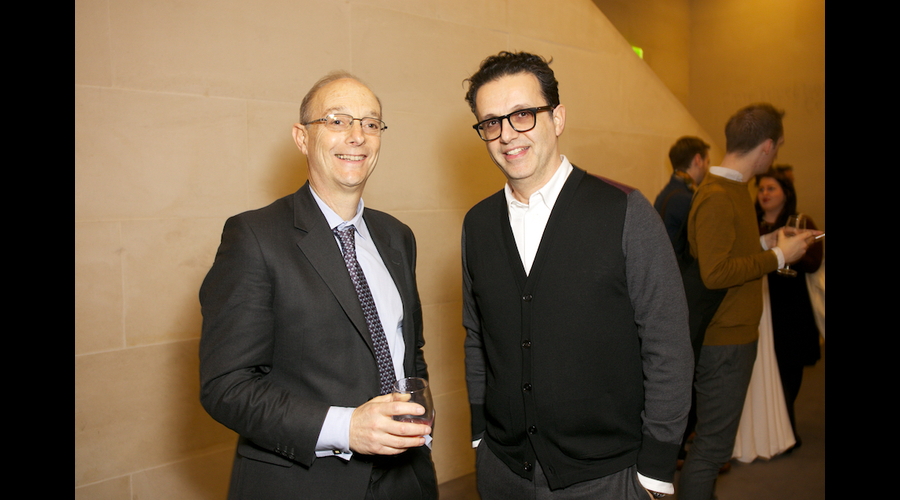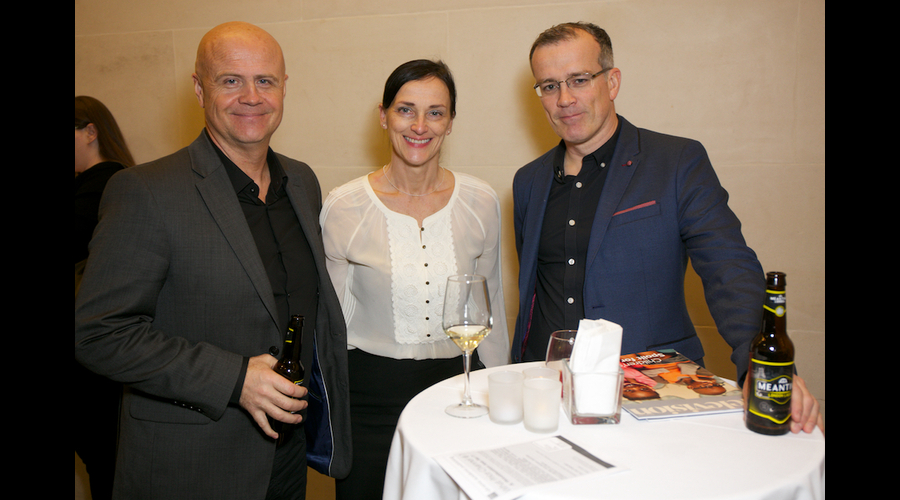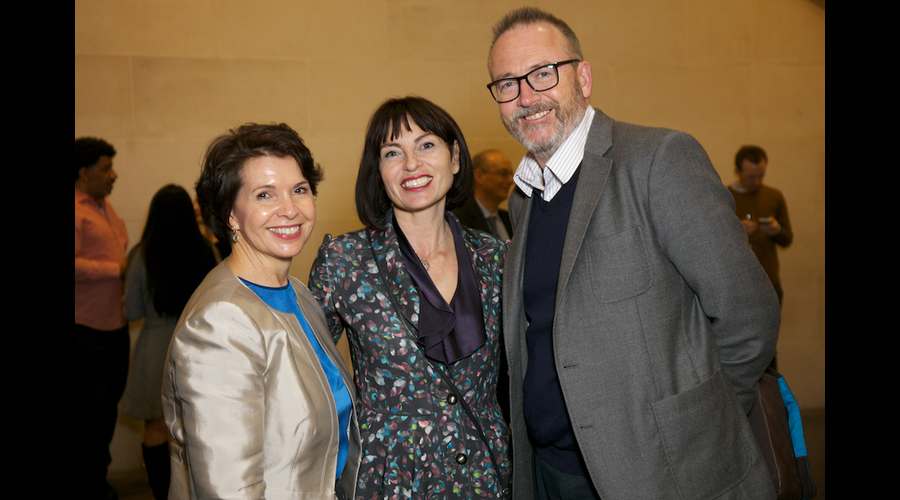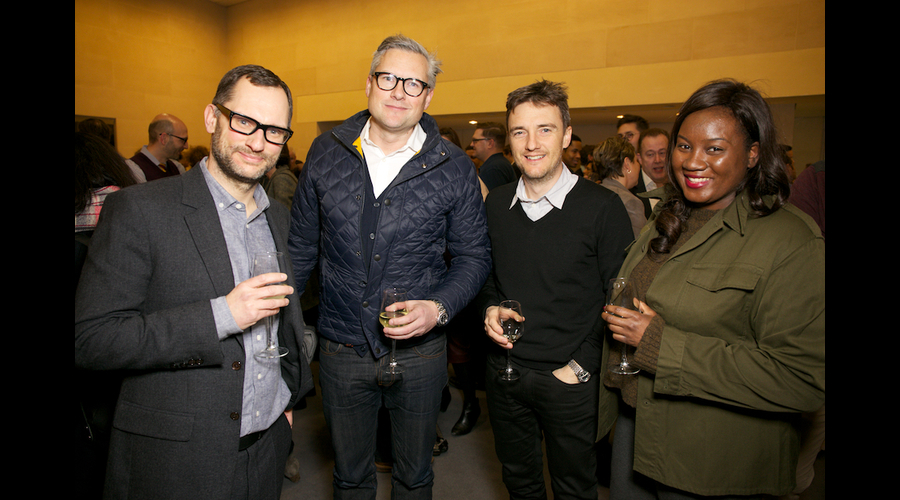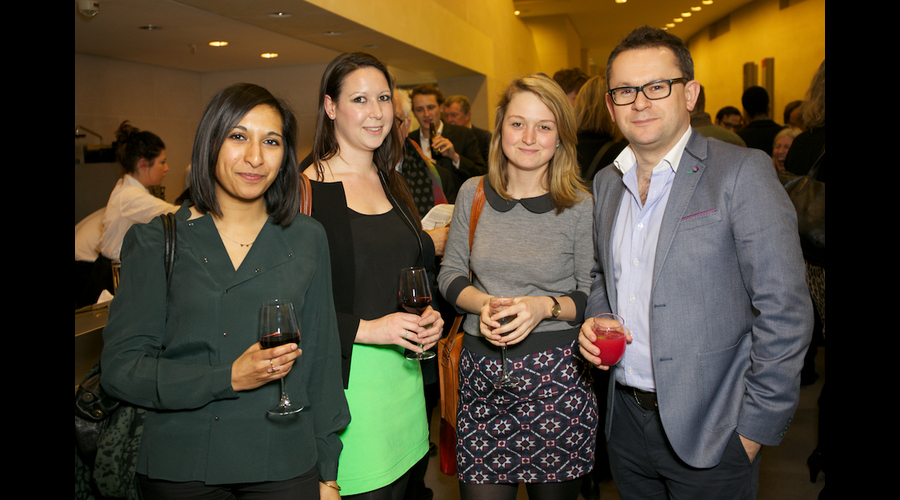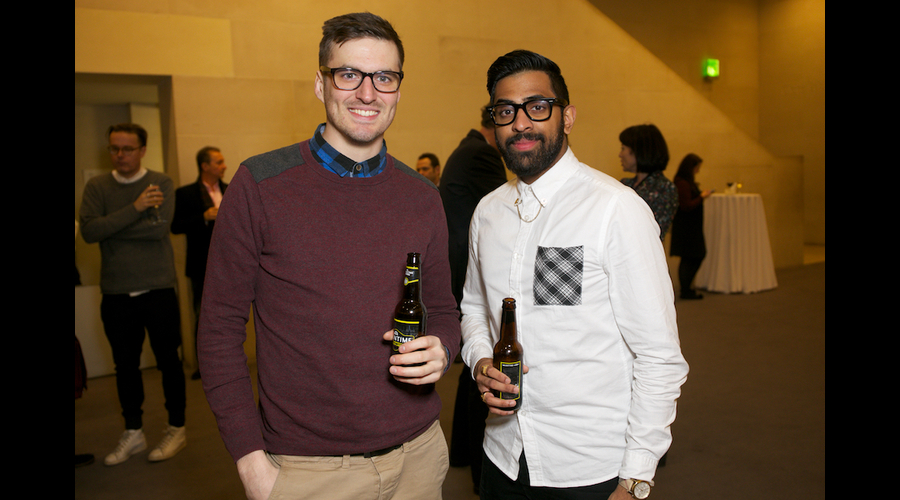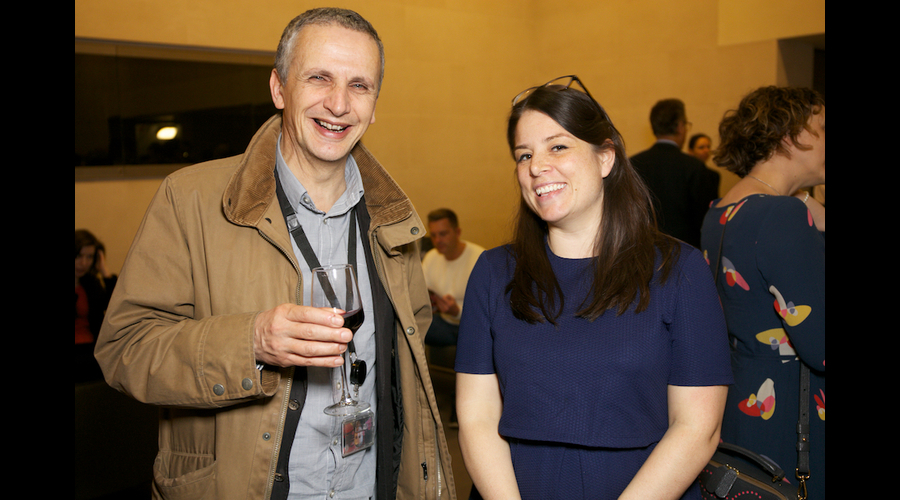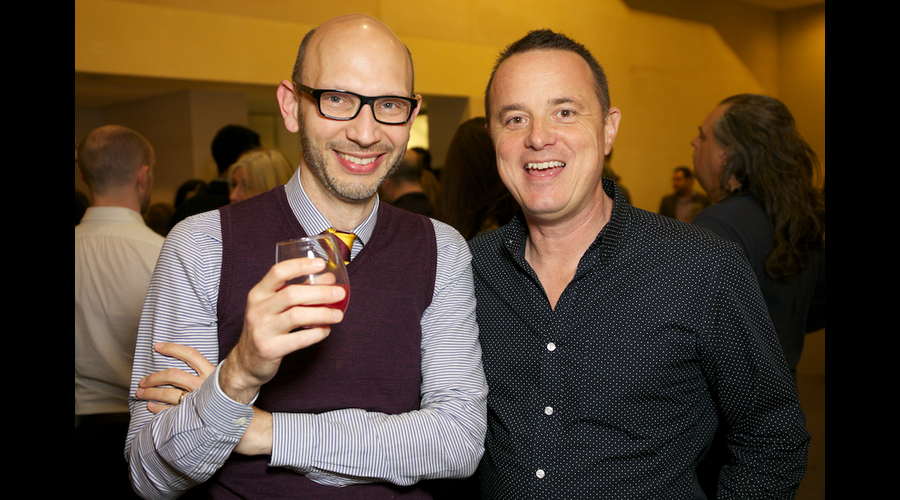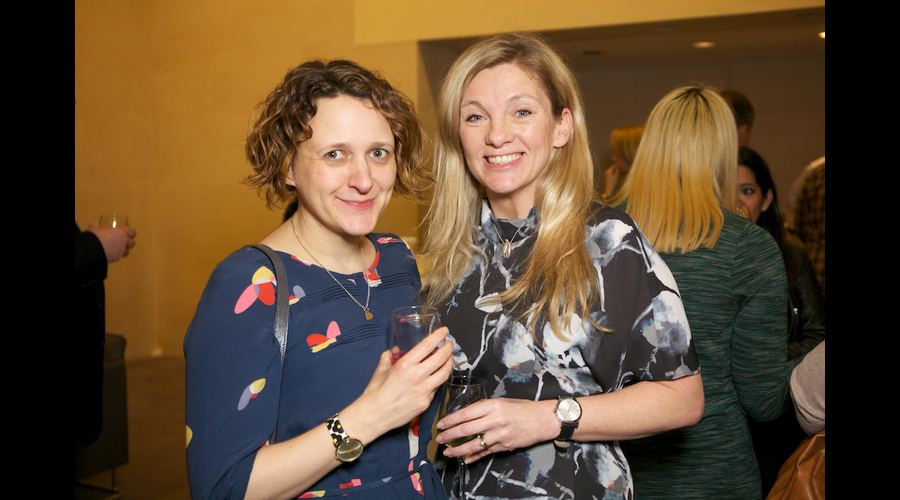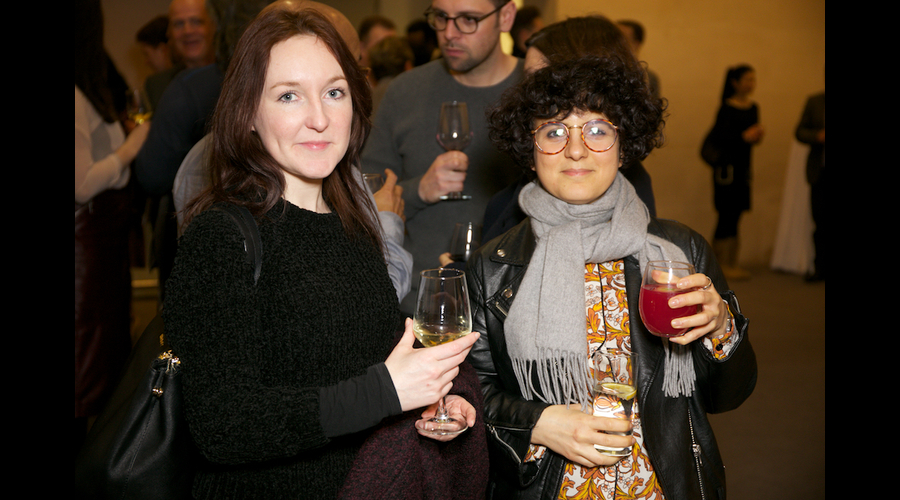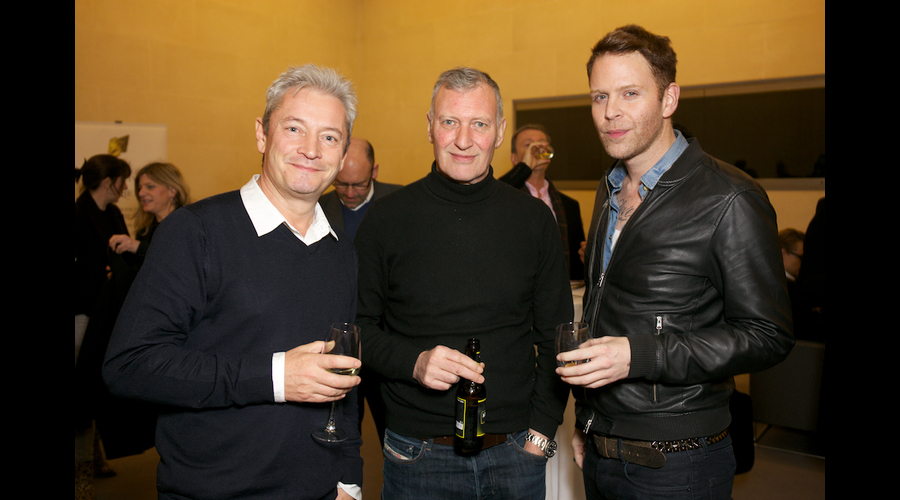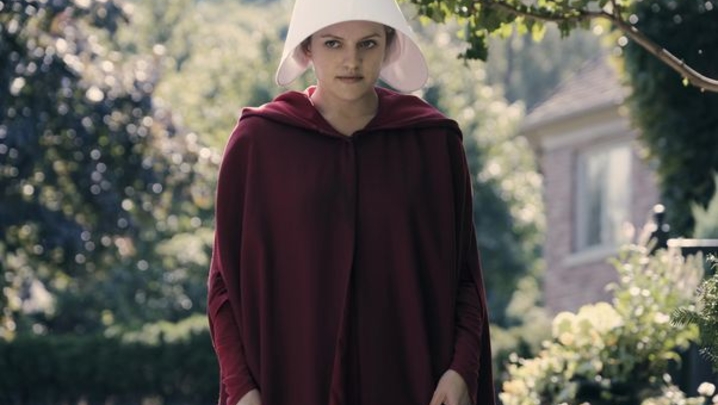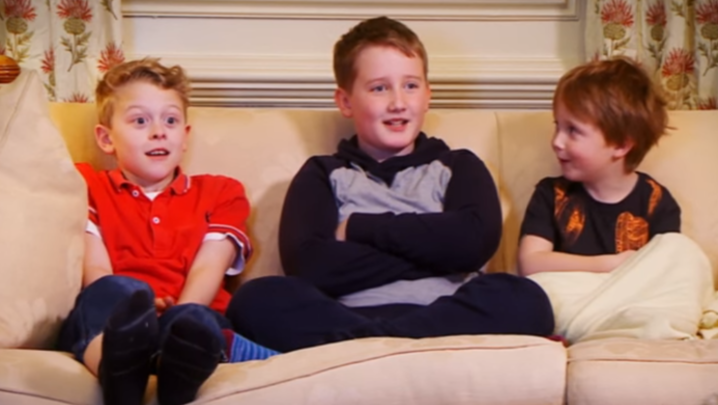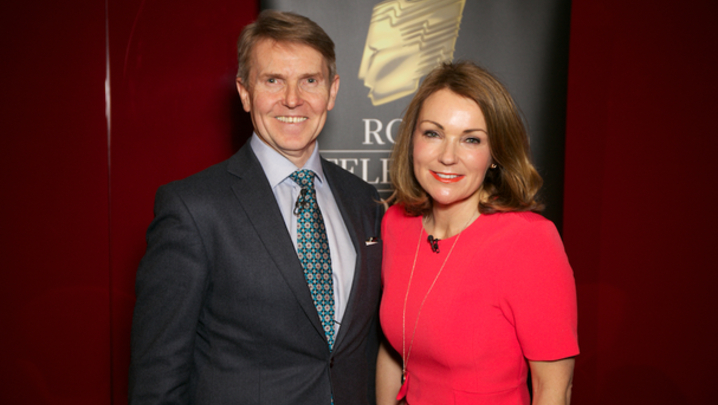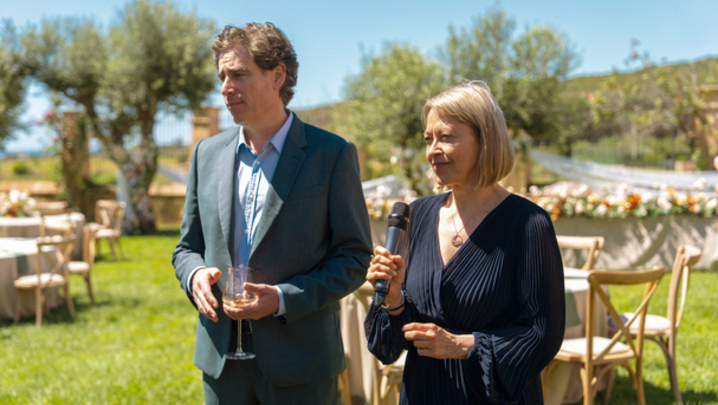Channel 4's Chief Creative Officer Jay Hunt reflected on her first five years at the broadcaster at an event held at the British Museum.
Read her speech in full below:
Hello and thank you all for coming. If you are slightly bewildered at finding yourself at the British Museum on a Tuesday evening, I know how you feel. I’m a reluctant interviewee and an even more reluctant speechmaker. Tonight though I have no one to blame but myself. I chose to be here. I chose to be here because I wanted to speak for the first time about something that has mattered as much to me as anything I’ve put on the air at 4. I’m not going to bore you to death on terms of trade reform or the importance of Channel 4’s unique model. This speech hasn’t been pored over by the press team or drafted by corporate affairs. Tonight I just wanted to give you a very personal view of what it’s been like trying to change the culture at 4 from the inside out.
Five years ago I walked over the glass bridge at Horseferry Road to start my job. It was an intimidating experience. I remember sitting in my first board meeting so nervous of looking foolish that I didn’t want to adjust the height of my chair in case I disappeared under the table. I can tell you nothing commands authority quite as much as a woman outlining a turn-around strategy with her feet dangling four inches off the ground.
It’s easy to forget what the Corporation looked like then. Channel 4 had always been an iconic brand that resonated with young audiences. A buzz word for innovation and mischief making. But it was also battered and bruised. The recession had hit it hard. Twenty percent of headcount had been wiped out overnight. On air, it could be schizophrenic. Two hundred hours of Big Brother cast a long shadow. Factual had to fly the flag for the remit. To top it all off, the creative team was famously clique. A snapshot supplier survey done just before I arrived made hair raising reading. Four was still the indies champion but the indies were falling out of love with a broadcaster they accused of cosy deals with former commissioners and a closed shop culture that concentrated spend on a favoured few.
Roll forward five years and where are we now? Today Four is positively bullish. No Big Brother, no begging bowl, no busted business ventures. In 2015, the main channel was the only terrestrial to see growth for all audiences. To put that in context, for the first time in a decade Channel 4 actually got bigger. There’s been critical recognition too. Broadcast’s Channel of the Year and a record haul of RTS nominations. Now we work with around 300 indies. Even Ofcom, which has a regulator’s lack of enthusiasm for gushing, has said the channel is in rude health. We’ve even had some of Her Majesty’s press call it a creative renaissance.
Job done then, right? Course not. We’re still not perfect. There are still detractors. Those who feel unloved and overlooked, those who think we could remain truer to our core principles. But even in those quarters there is a grudging acceptance that something has changed. It’s changed culturally. It’s changed creatively. It’s changed Channel 4.
So how has it changed? Well, most obviously we’ve worked with brilliant people who’ve had brilliant ideas and made them in to brilliant TV. Writers, directors, producers, editors all delivering their very best work for 4. But we’ve also changed the way we work. Why? Because anyone in TV knows that what we all do is a form of insanity. The roulette wheel at a seedy Vegas casino has better odds than picking hit shows. If you’ve ever sat opposite a venture capitalist or a frustrated finance director and tried to explain what we do you know this is a mugs game. “So how many of these breakout shows will you have next year?”, “Um. I don’t know”. “What about your growth projection for 2018?” “Mmmm not really sure.” “Ok, well let’s keep it simple then. How many of your current shows will be back next year?” “ Well I couldn’t really say”. It’s not that we’re spectacularly incapable. We’ve just all chosen to work in a uniquely uncertain industry. Over a decade as a producer taught me that. I lurched from the sublime – broadcasting live from the first multi racial elections in South Africa to the ridiculous – playing judge and jury in a stand off between the late Alan Coren and Rod Liddle over whether he had cheated on Call My Bluff. When you are at the coal face of production, it feels exhilarating but unpredictable and difficult. And guess what? When you cross over to the channel side it feels exhilarating but unpredictable and difficult. You realise quickly we’re all in this together. Channels and indies – wrestling with creation and curation, fostering mad ideas we hope will resonate culturally for years. But the road to those highs is congested with failure after failure. When I arrived at Four, I realised we needed to shift the odds. Or to put it another way, we needed to bring some science to the art of being creative.
And there was some urgency. I remember the blood draining from my face when I first read the lofty remit I had signed up to. In case it doesn’t quite trip of your tongue – it certainly didn’t trip off mine - Channel 4 is tasked with delivering shows that demonstrate innovation, experimentation and creativity. No other broadcaster has such a non-negotiable requirement to take risks. And it doesn’t stop there. Channel 4’s creation was a political intervention. It’s continued existence is dependent on us making a series of social interventions. We’re required to prompt public debate and champion alternative viewpoints. I once overheard an American studio executive explaining Channel 4. She said, slightly disparagingly, “It’s a buyer”. And of course she’s right in part. But it’s also an organisation tasked with having a perspective and inspiring change. It’s a bunch of talented people backing innovative ideas for the greater good of British society. But you all know that. You wouldn’t keep trying to steal my staff if you didn’t. In 2011, it seemed stark to me that if we were to have the most creative shows on air we needed to have the most creative culture off air.
If you look at my upbringing, you’ll be unsurprised by what I did next. My dad, who sadly died at the end of last year, was a Professor of Organisational Behaviour. He was fascinated by how group dynamics shaped cultures. And so am I. Creative organisations present a particular conundrum because they’re built on the notion that ideas are king. Many people, and years ago Channel 4 was no different, still subscribe to the view that the TV equivalent of the artist in the garret is the only real custodian of creative thinking. Right now, so the mythology goes, someone somewhere, a development producer, a writer, a performer is coming up with the next big thing. They probably are. But can we really build a billion pound business on the promise of something that incalculable? Simply put, are there enough uniquely creative individuals coming up with enough high quality ideas to feed a broadcaster? What other organisation of scale would chance its success to something so unpredictable?
And that, of course is the point. We tend to romanticise what we do. There’s even a clue in the title. We call ourselves the creative industries, the implication being that other people in industry do something that isn’t creative. But of course this tortured wrestling with ideas is universal. There are brilliant case studies from companies as varied as Twitter to Dyson. The themes are the same. How do you structure to improve your chances? How do you tolerate and nurture maverick thinking but still deliver at scale? The mantra of 21st century business thinking is all about leading for innovation. And critically, it’s about nurturing a sort of collective brilliance. It’s about acknowledging you have a workforce of experts. If a singular genius can’t carry the burden alone, we need to find genius together.
With that insight and my Harvard Business Reviews tucked firmly under my arms, my poor unsuspecting team were put to work. An academic from Manchester Business School taught us earnestly about the amygdala function and how it could inhibit our thinking. We had off sites where we stood in line – most fashion conscious to least fashion conscious – to understand difference. We were involved in piloting a new personality tool which evaluated our powers of analysis. We learnt the theory of great brain storming. The importance of always carrying a notebook. Why it was vital to incubate an idea before doing anything. Frankly, it was exhausting.
Meanwhile, someone else at 4 was doing something altogether more useful. My then channel executive Ed Havard was sent on a management course in LA. It was designed to foster new ways of thinking. Just the sort of thing guaranteed to prompt a mass display of eye rolling, I know. Ed and I first worked together a terrifyingly long time ago on the Six O’Clock News at the BBC. One of the great joys of people from news, in my experience, is that they have a very low tolerance for creative airy fairiness. Ed was no exception and yet he came back from the States evangelical.
He’d seen lots of companies but one had really impressed. It’s almost a cliché in creative circles now to cite Pixar, particularly after Ed Catmull’s excellent book Creativity Inc. But back then their unique way of working was less well known here. The Pixar culture is built on robust peer review. At its heart, the organisation is defined by a belief that decision making is better when it draws on a collective knowledge.
One of the central tenets of the Pixar model is The Brains Trust. It’s basically a posh name for a meeting of the top creative team. It was set up during the making of Toy Story with a purpose that could have come straight from the mouths of one of their own superheroes. It was tasked with “rooting out mediocrity”. It became a forum to tease and test a concept in a safe, supportive environment. That might sound like any old meeting you go to any day but the difference here is the willingness to be honest. Ed Catmull’s mantra is simple but incredibly hard to deliver. He said “Candor is the key to collaborating effectively. Lack of candor leads to dysfunctional environments”.
And I knew all about those. I'm a strange control experiment all of my own. As the only person to have run channels at Four, Five and the BBC, I’ve seen several broadcasting cultures at close range. It’s no exaggeration to say that collaboration wasn’t one of their defining behaviours. And nor, frankly was candor. All of them paid lip service to honest peer review with big meetings inspirationally labelled programme reviews. These were studies in political game playing that would have put the Borgias to shame. A sort of retrospective “you like my show and I’ll like yours” form of point scoring. At Four that behaviour was even more marked. David Abraham, recounts a funny story of his first meeting with the commissioning heads of department before I arrived at 4. They all took their seats expectantly and David kicked off by asking how often they normally met as a group. One of them who still works at 4 piped up “well we never really meet like this”. They never even met. When creative organisations drift I think what follows is a collective neurosis which manifests itself in the worst kind of hide your homework behaviour. Let’s be honest, if failure is met by stony silence and success by plaudits, who wants to share a good idea with anyone else?
It was against this rather unpromising backdrop we started to work in a different way. All the mad queuing up and thinking about thinking had sewn the seeds. We would be a different sort of broadcaster. A team working in partnership with indies to improve our collective chances. I started by organising two hourly meetings twice a week with my own team. There were only two rules. First, there had to be food. Food was good for fuelling great creative thoughts apparently. Or so Ed said. Second, those meetings were non negotiable. Everyone had to turn up. No excuses.
I still have nightmares about those early meetings. They could be best described as awkward….with superlative salad. Why awkward? Because you can’t just announce overnight to a bunch of people who have hardly ever met that now we are going to be honest and expect it to happen. As in any relationship, the trust develops over time. Sadly as the trust came, the superlative salad went. Turns out Ottolenghi isn’t as important to nurturing hit shows as you might think. Gathering in my meeting room went too. Trying to have a conversation about big new ideas in the same room where you talk about the lift refurbishment isn’t that easy. The four hours went too. We couldn’t manage it consistently. Now we meet every week first thing on a Tuesday for ninety minutes. We sit on sofas in a room a the top of 4,in some sort of strange homage to the artist’s garret. It’s called “the breakfast” but that’s a misnomer. The only sustenance is coffee. We discuss everything and anything. What should our response be to the growing number of unemployed young people? What would it look like if we took this germ of an insight and planted it over there? How do we capture the current disaffection with conventional politics?
Three years on, everyone trusts knowing that they are invested in collective success. It’s become a powerful forum for finessing ideas. Imagine a focus group of people who genuinely got TV trying to work out how to get your show on air. And that’s it. No one in the room has any other motivation for being there. They’re not incentivised to help. They don’t have a financial stake in success. They’re just trying to make the good, better. Creatively, it’s become like turning to a clever friend.
And, critically, it’s changed what’s on air. I wonder if you recognise this.
[Clip from taster tape for The Island]
A longer version of this tape went to our breakfast. In the garret, we talked about what would make the show truly fresh. It wasn’t the clichéd chorus of disappointed women. In fact, they'd be banned. It was a show about being a man in Britain today. What was it like to be expected to be a good dad, a good cook, a good husband and yet feel haunted that you couldn’t put up shelves? A non format format with no rules. A series that would resonate with men, precisely because it didn’t have the trappings of traditional reality. We would just let it unfold. Terrifying. And yet rather magnificent.
[Clip from The Island with Bear Grylls]
Now credit where credit is due. No one at Four made The Island. Tim, Kelly, Ben and the rest of their supremely talented team made that show and they deserve the credit. It’s a slam dunk run away success. Audiences of over 3 million. A BAFTA and an RTS. A remake for NBC. A fantastic piece of work delivered by Shine. But the commissioners at Four did help shape what it would become. In that instance, the breakfast added value. I think it helps. Not always but often. Rather comically, though I’ve never really talked about it outside 4 , it’s frequently referred to by indies. I’m often asked in meetings if something’s “gone to the breakfast”. Occasionally, even if their idea could go. Why? Because what’s not to like about getting some additional brainpower on cracking a show.
So one of the clues to how we’ve got better lies in lifting some of Ed Catmull’s culture of candour. Regular, honest peer review has helped us commission better shows. Alot of us have lived through the era of rolling out open plan working. Channel 4 was ahead of many in knocking down the walls. But it didn’t bring about the openness and frank dialogue many thought it would. It turns out you can hide your homework just as easily in an open office as you can in a closed one. But forcing a top team to meet every week to be honest about ideas has changed the culture. It’s shifted the conversation in a way bringing down the walls never did.
But of course this alone hasn’t changed the odds for Four. It’s been just as important to learn to deal with failure. Americans have a brilliant oxymoron “failing well”. On Amazon you can even buy an entrepreneurs self help book rather optimistically called the The Upside of Down. But anyone who has ever delivered a flop or crept into the office after a bad set of overnights knows that there isn’t much upside to down. Failing isn’t something anyone has much of an appetite to do well. And there’s a very simple reason for that. You can spin it anyway you like but any business can only countenance so much failure before it too fails. We all know that and yet statistically the TV industry fails far more often than it succeeds. And for a Channel like Four, with a remit to take risks, the commercial contradiction is even starker. Channel 4 should probably always fail more than it succeeds or it’s not trying hard enough.
You can’t make failure good but it was obvious to me that it had to start weighing less heavily on all of us. I had some insight on this from my background in news. News is high octane, demanding, intellectually rigorous. But it also has the wonderful charm of being disposable. No matter how bad a show you’ve done, the very next day you get to have another go. If you’ve made a terrible mistake, and I remember a few, not least the day I walked out of the 6 O’Clock News gallery when we had yet again got the Chairman of the BBC’s name wrong, you were editorially reborn the next day. This phenomenon of failing and going again is even more readily understood in the digital space. It’s fascinating to talk to people who have grown online editorial businesses where costs are obviously lower. They don’t understand failure in anything like the same way. Online, nothing ever really fails. It’s just an iteration on the road to getting it right.
I won’t pretend it’s easy to take this approach. It’s hard to change a culture in which flops are never spoken of and successes are lauded to the roof tops. It’s hard to justify backing shows that appear dead on arrival. But as audiences become more sophisticated surely our judgment calls need to be as well? I’ve always found the idea of a channel controller sitting there Nero like giving a thumbs up or thumbs down on a recommission to be rather cartoonish. It’s even more so now when data has given us so many tools to help spot what might work. Did social media leap on the show? Were the audience appreciation scores high? Did it deliver the perfect tick the scheduling team are looking for where a show launches well, possibly drops off but then grows again? Did it have the buzz of early adoption in the press? These are all insights which give meaning to what a lot of us would simply call gut instinct.
But metrics help when you are selling a vision to parts of a creative business that need to make the uncertain certain. We’re not a bunch of amateurs. As creative leaders, we need to be able to explain our decision making to people who would, frankly, find it easier if we made tyres. At least then we could predict accurately just how many tyres might come off the production line next year. The interface between creative teams and finance gets challenging at moments like this but maybe it shouldn’t. After all, it’s a moot point whether it’s more costly to sift through the ashes of a disaster than start a development from scratch. There’s a book in my pile of Harvard Business Reviews, called the Collective Genius. In it the writers talk in a compelling way about how reliant real innovation is on mining data. I’m sure that seems anathema to many people in this room. Aren’t spread sheets and powerpoints the very thing that destroys great creative thinking? Apparently not. Real innovators, they say, “not only pay attention to data but actively and voraciously collect and analyse it”.
Let me be clear what this strategy is not though. It’s not a short cut to the moment of magic that leads to great TV. In a world where Netflix and Amazon tell me they can predict what I will watch, I am a refusenik. You can’t run the numbers for surprise or feed my viewing habits into a big machine and tell me I will like something I never even knew existed. The creative flair in this room is still what ignites the flame. To extend the analogy, looking for clues in the data is how we manage to keep the flame alight. Simply put, we can’t afford to be so wasteful with our own IP. By thinking again about how to turn failure into success we increase the odds. If you’re still not convinced, look at this.
[Clip from the taster tape of The Gogglebox]
That taster of Gogglebox developed into the show which launched in 2013 to near deafening silence and just 800,000 viewers. Three years later it had become this.
[Clip from Gogglebox]
This year Gogglebox has regularly beaten all comers at 9pm on a Friday and hit the dizzying heights of 6m. Stephen, Tanya and the team at Studio Lambert, ably helped by the inimitable Mr Glover, have made it a cultural phenomenon. And it’s not the only title that has become channel defining from unpromising beginnings. We’ve stood shoulder to shoulder with other indies to grow shows. First Dates became a hit after we bloody mindedly refused to give up on it. Similarly, The Last Leg went from struggling to get an audience of over a million to delivering double digit young share and audiences over 2 million. I may be Australian but I’ve learnt the British art of understatement. Those shows are what I would call failing well..
So honest peer review and changing the way we deal with failure have played their part in Channel 4’s success. But simply getting people with varied backgrounds to work together has been creatively powerful too. It’s known as “thought diversity” by some academics and it works on a simple principle. Working with different people makes us think differently. Obvious maybe but it’s harder to pull off than you might think. Unchecked we surround ourselves by people in our mould. Consultants call it “mirror recruiting”. It’s a form of management laziness. We are all naturally attracted to people who are likely to get us. On some subliminal level, we are making a calculation our life will be easier because we are more likely to be understood. I, for example, am always drawn to fast talkers. You’ll never guess why.
The irony of this approach is that it’s precisely what we are doing subconsciously to make our lives easier that can make our lives harder. Teams of people who have the same skill set tend to create programming that speaks to them and not the audience. Even though we all secretly suspect that, I’ve never worked anywhere designed to make people engage with others who had a different perspective. Lenny Henry’s intervention on the diversity debate has put this very theme centre stage. Let’s be frank, we still have a long way to go changing the makeup of broadcasters in terms of ethnicity, social mobility and even gender. But even working with what we currently have there is no tradition of mixing it up. Not at the BBC or Five or Four, back in the day, did drama commissioners shoot the breeze with the head of current affairs. You didn’t bump in to the guys from features kicking around a script with the head of comedy. But they do now at 4. Maybe I’m over claiming but I think we owned the new buzz phrase cross genre programming before it became fashionable. And that’s because it runs like a seam through so many of our shows. Look at some of the hits we’ve had over the past year.
[Clip of some of Channel 4's recent hits]
Ballot Monkeys – a scripted comedy with the topicality and quick turn schedule of Newsnight. Hunted – a fact ent show cut like a doc with embeds. The Murder Detectivies – a documentary repurposed as a real life drama. The Secret Life of 4 Year Olds – a science show with the warmth of Kids Say the Funniest Things. There’s something wonderfully eclectic about our biggest entertainment show coming from the specialist factual team, our biggest factual entertainment programme being championed by formats. Some of it is serendipity. Some of it comes from changing the culture. Internally, teams are now actively encouraged to share ideas and to work together.
Now you can begin to see the BBC and ITV wrestling with some of these themes. Last week we were told BBC One will be unashamedly popular. BBC2 becomes a BBC One’s conscience. Working to a head of television, life will apparently be simpler. The BBC will be more agile, more collaborative. Meanwhile at ITV the opposite is happening. Gone are the super fiefdoms of entertainment and factual. The team will be flatter and also more collaborative. Both broadcasters are just trying to structure for success. But I wonder if they’re missing the point. If we’ve learnt anything from the living breathing experiment that is 4, it’s that you need to fundamentally change the way you develop ideas to land something truly different Collaboration at 4 isn’t just a “you all play nice” bit of management speak. It’s core to the way we work with indies. It defines our daily work as a team. Ultimately, that’s what’s helped us grow shows that really deserve the much over used word distinctive.
So certain am I that at 4 we need more input into our creative conversations not less, the breakfast meeting I hold with my heads of department has been rolled out to the whole of my team and beyond. Once a week there are at least 9 different groups of people kicking around ideas. The team who write our press listings and run our presentation desk have joined in too. We’ve even got people from sales in the mix. In any given week, over a hundred people at 4 are discussing what we could put on the telly. In time, I hope people from all over the company will become part of this quiet revolution because they force us to think differently. And forcing us to think differently has led to a higher number of shows that feel genuinely original. It’s also made us work faster, particularly in genres where mass audience taste is so hard to call. Comedy is a great example. Helped by the breakfasts, Catastrophe was recommissioned before it was aired. Flowers, our brilliantly dark new comedy drama was championed in the room not just by my talented Head of Comedy, Phil Clarke but by our head of documentaries Nick Mirsky. Working this way, we can be more sensitive to different taste, quicker to tease out problems, more confident pressing go. It’s also changed our sense of responsibility as a team. There was a rather wonderful moment the other day when I started describing a drama we are about to air to the E4 commissioning meeting. Everyone looked a bit bemused. Eventually someone piped up “Yes we know. We all read the script”. We’ve been doing this so long now that even our biggest calls, our dramas, land with a palpable sense of collective ownership. We all talked about it. We all stand by it. It’s changed the very core of the culture at 4.
If it all sounds a bit People’s Republic of Channel 4, it’s not. You can’t churn through the decision making needed to commission thousands of programmes across a portfolio of channels by putting every decision to a vote. In the end, like channel controllers everywhere, I have to decide and be accountable to David and the Board. But those decisions are now informed by the most inclusive commissioning process I’ve ever been part of. The success is all of ours – and that includes everyone in this room who makes shows for 4 – the misses get to be mine. I can’t imagine us working any other way.
So five years on these are the things I know. Creativity can be led by teams not just individuals. Risking failing ensures you succeed. Different perspectives colliding sparks real originality. Five years on here’s what I don't know. How many unusual thinkers can a broadcaster support before their chaos means the work doesn’t get done? How do you create a culture where people are safe enough to fail but not safe enough to never succeed? And there are many more. Because we are still learning. I don’t think anyone has ever run a broadcaster like this and we’ll make many more mistakes before we get it right. But I’m confident of one thing. If we keep evolving the culture, we will keep evolving what we put on air.
I also know I’ve been lucky. Lucky because I’ve had the luxury of being able to experiment. For starters, I’ve had a boss who understands creative risk taking. David gets it. He’s been on the coal face himself. He knows you’ll only win if you try and then keep trying. I’ve been lucky, too, because Channel 4 is unique. Andrew Billen the Times TV critic used a recent column to recount me telling him why we persisted with First Dates when it was written off as a flop. He admired our patience and willingness to tweak until we’d grown the show into a hit. And he made the obvious point. Someone focused on the bottom line wouldn’t have backed a show it didn’t make any sense to back. He’s right of course. Not having to deliver a profit has allowed us the space to fail. And being more pragmatic about failing has ensured we have succeeded. In the maelstrom of political noise we are living through at the moment, maybe it needs spelling out even further. I am absolutely certain we would not have achieved what we have achieved in private hands.
So, five years on, what’s really changed? In some respects, very little. I still haven’t learnt how to adjust the chair in the Boardroom. I still feel sick with nerves when we launch a big show. I still whoop when things work and feel crestfallen when they struggle. But one key thing has changed. My ambition for 4 has changed.
I know now that 4 can be just as innovative off air as it can on air. Five years on, it’s a different kind of broadcaster. A place where brilliant indies work with commissioners who are talented producers themselves to make unmissable shows – shows that move the dial not just here but globally. At its best, I believe Channel 4 can rival the greatest creative organisations in the world.
And, let’s face it, who wouldn’t want to be part of that.

